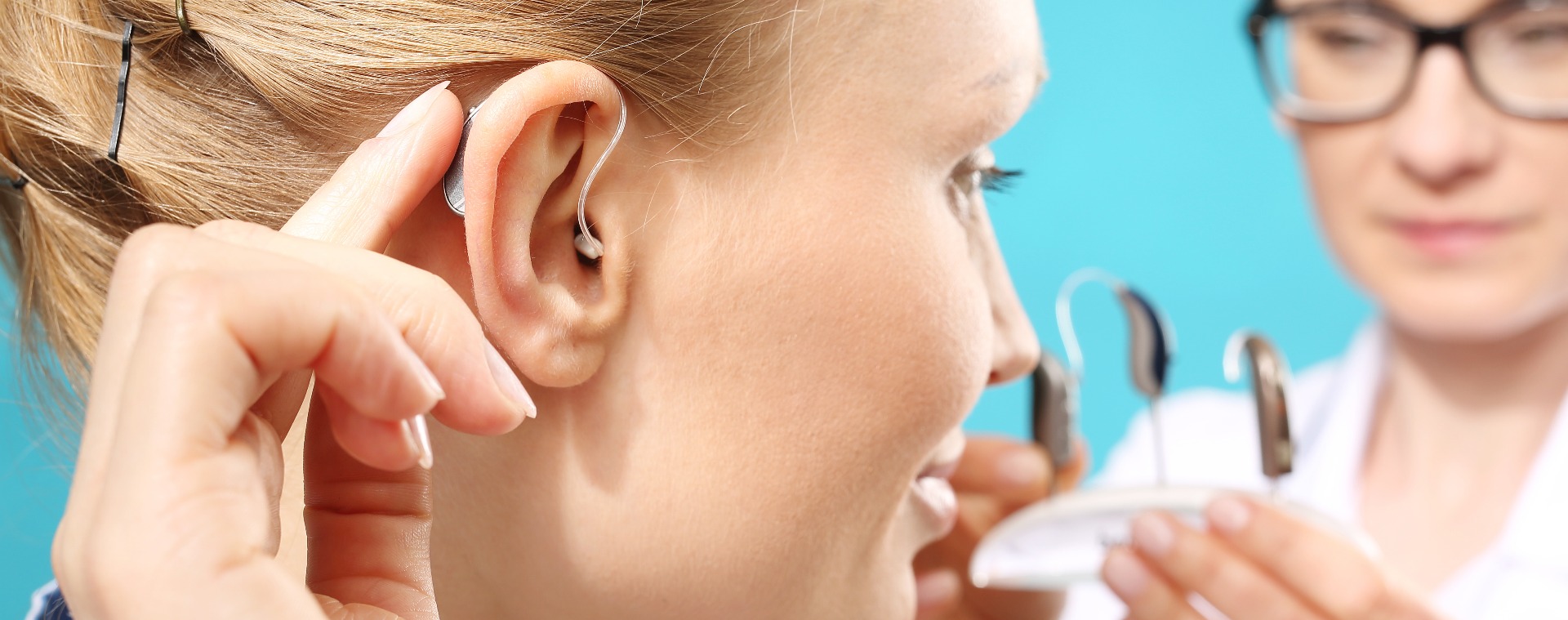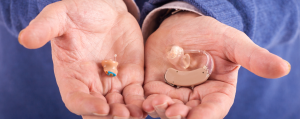THE IMPORTANCE OF A BINAURAL HEARING AID

17 January 2022
Many people who are hard of hearing only wear a single hearing aid. However, more than three quarters of the people who need a hearing aid suffer from bilateral hearing loss and get much better results with a binaural device. That’s why it’s important in most cases to choose this type of hearing aid.
A binaural device offers better sound perception
Hearing loss, whether it’s professional, congenital, or simply due to age, usually affects both ears. In this case, it’s preferable to choose a binaural device, even if one ear is much less affected than the other.
Indeed, wearing a hearing aid in each ear lets you:
– Better localize sounds: Only two ears that hear well can properly pinpoint the source of a sound. However, if the hearing-impaired person isn’t capable of determining where a sound is coming from, this creates discomfort for them, especially because they feel as though they always have speakers on the same side. Furthermore, when crossing the road or driving a car or operating machinery at work, this can be dangerous.
– Perceive sounds in a distinct and more uniform way, almost like natural hearing. With two hearing aids, sounds become more intelligible, it takes less time to identify them, and conversational understanding is improved. You can also hear sounds from further away.
– Enjoy better sound quality: A binaural device helps increase the sound perception radius, the field moving from 180 to 360 degrees. The brain also receives more information when both ears can hear well: this reduces the work of deciphering words and increases speech comprehension, especially in noisy environments.
– Reduce tinnitus: More than half of all hearing-impaired people suffering from ringing or whistling in the ears notice a significant improvement when they wear a hearing aid. However, only a binaural device can treat this phenomenon in both ears.
A binaural device improves the quality of life for hearing-impaired people
Thanks to binaural hearing aids, people affected by hearing loss can enjoy better listening comfort, which even has an effect on their everyday well-being:
– Their fatigue is reduced, because they don’t need to concentrate to hear others.
– Since they can hear better and without effort, they enjoy more realistic and pleasant sound perception, and they can join conversations more easily.
– They enjoy better balance, since hearing and balance are linked via the inner ear.
A binaural device to avoid making the hearing loss worse
For people who have hearing loss in both ears but only wear one device, the adjustment is made to compensate for the hearing acuity deficit of the unequipped ear. This excessive sound quickly leads to discomfort and trouble understanding conversations in groups and noisy environments. Over time, this adjustment can even increase the person’s hearing loss.
Both ears must function optimally to be able to capture sounds and allow the brain to interpret them correctly. By choosing a binaural hearing aid, you come closer to natural hearing, and sound perception is improved while minimizing effort. When you’re affected by bilateral hearing loss, it’s always best to choose a binaural device: this type of hearing aid lets you regain the best possible hearing, even if neither ear has the same hearing loss.
Autres articles
ARTIFICIAL INTELLIGENCE IN AUDIOLOGY: HOW AI IS TRANSFORMING THE HEARING AID EXPERIENCE
In a time when artificial intelligence is making its mark on every business, it’s nice to see that it’s making…
MINI BEHIND-THE-EAR HEARING AIDS: WHAT ARE THE ADVANTAGES OF THIS TYPE OF DEVICE?
The behind-the-ear hearing aid is a hearing aid system that comes in different shapes, sizes, and colours in order to…
EAR PLUGS FOR THE POOL: WHY AND HOW TO CHOOSE THEM
Updated on June 09 2023Protecting our hearing and maintaining a healthy balance system are essential, especially in aquatic environments where…


